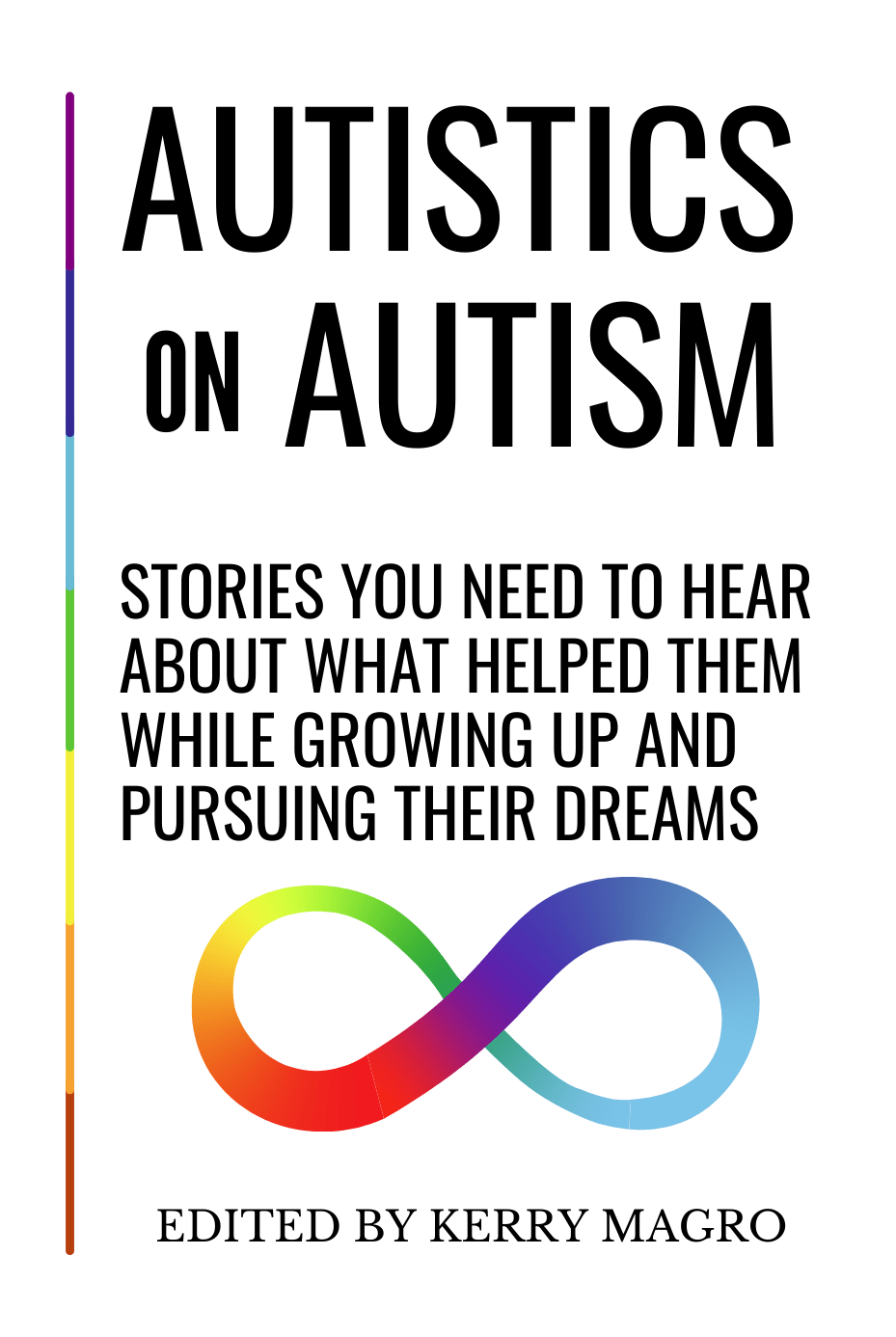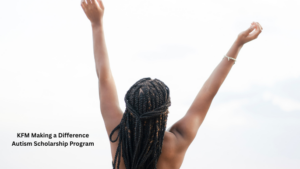This guest post is by Emily Sedgewick, a young woman on the autism spectrum who was diagnosed with ASD at age 3 and has been accepted into Muskegon Community College. Emily is applying for the Spring 2022 Making a Difference Autism Scholarship via the nonprofit KFM Making a Difference started by me, Kerry Magro. I was nonverbal till 2.5 and diagnosed with autism at 4 and you can read more about my organization here. Autistics on Autism: Stories You Need to Hear About What Helped Them While Growing Up and Pursuing Their Dreams, our nonprofit’s new book, will be released on March 29, 2022 on Amazon here for our community to enjoy featuring the stories of 100 autistic adults.
Hello. My name is Emily Sedgewick and I was diagnosed with Autism Spectrum Disorder (ASD) when I was three years old. When I think about what autism does to my life I think two things stand out.
First, I’ve struggled with social communication for as long as I can remember. When I was younger, I spoke in movie lines trying to communicate what I was thinking to other kids. I did not hold eye-contact when I was talking to others. Most of the other children didn’t understand what I was trying to say, and didn’t feel comfortable being around me when I wasn’t looking them in the eye. Furthermore, I would become fixated on anything that moved in circles. I was sometimes found flushing the toilet repeatedly in the bathroom to watch the swirling motion of the water, or staring at ceiling fans as they circled around. Other children thought I was odd and avoided me as a result. This led me to be misunderstood and left alone more often than not. I was never invited to sleepovers or birthday parties when I was a kid.
In addition, there have been times when my frustration at not understanding others or not being understood has led me to have angry outbursts. I’m not great at following social cues so I’m not really clear when I’m talking too much or not talking enough. Sometimes I say things and they come out wrong or I am not aware that I am saying something that may be offensive to someone else. This has led to other students treating me differently and my temper sometimes getting the best of me. Though my intent is never to do harm, I have often lashed out at others, especially when I was young. I would scratch kids near me and this also led me to be isolated from other students.
Today, however, I can safely say that I have successfully grown as a person living on the spectrum. With the help of aides, social workers, teachers and supportive peers, I have overcome many of my communication challenges. I have been meeting with social workers and psychologists once a month for years, and this has helped me work on the coping strategies I need to help me with my anger. I also worked on my social skills by having small group meetings with students my age, role-playing situations and talking through how to handle anger and frustration in a safe environment. Now that I am older, I have learned to walk away or ask the teacher for a break if I need to leave a situation. I know how to handle social situations better and I do not yell at or hurt others. I do not feel that my temper is a problem anymore thanks to all the training I have been given over the years.
Now that I am a senior, I have learned that I do have talents worth sharing with others and that I am worthy of friendship and acceptance. I have learned most of these lessons while participating in a band.
One of the advantages of being autistic is that I have an uncanny ability to focus on specific things which I enjoy, and this focus enables me to become very knowledgeable about topics I am interested in. Since I was in sixth grade, I have played the trombone. And since sixth grade, I have been placed in the first chair. At every band Solo Ensemble competition, I received outstanding ratings for my solo performances. Once I was in high school, I participated in both the Marching Band and Jazz Band. Marching band required a lot of extra practice outside of school and that I attend a band camp each summer.
These extracurricular activities were hard and required that I gave my best effort. I learned that I could get along with others while living through harsh practice sessions in the summer heat. I also learned that I could perform in front of large audiences. During my senior year, I was part of a quintet that played in front of the audience during our marching band routine. I did this quartet each performance even though I get very nervous about having attention put on me. I learned that I can perform not only with a large group, but in front of large crowds in a small group as well. I also had solos in Jazz Band during my sophomore year. These performances required me to play by myself in front of an audience. Though I was nervous then too, I overcame my fear to perform. I think I have successfully proved that I can be a part of a team and help others to achieve goals. I have also learned how to believe in myself and even perform by myself or in a small group in front of an audience. I have worked hard and learned that I can be successful in extra curricular activities even though I have some challenges.
Now, I am graduating with a 3.25 average from high school this Spring, and planning on attending Muskegon Community College next Fall. I have been accepted into the two-year program Welding Technology and will graduate with an Associate’s Degree in Applied Sciences in the Spring of 2024.
Follow my journey on Facebook, my Facebook Fan Page, Tiktok, Youtube & Instagram,
My name is Kerry Magro, a professional speaker and best-selling author who is also on the autism spectrum that started the nonprofit KFM Making a Difference in 2011 to help students with autism receive scholarship aid to pursue post-secondary education. Help support me so I can continue to help students with autism go to college by making a tax-deductible donation to our nonprofit here.
Autistics on Autism: Stories You Need to Hear About What Helped Them While Growing Up and Pursuing Their Dreams, will be released on March 29, 2022 on Amazon here for our community to enjoy featuring the stories of 100 autistic adults. 100% of the proceeds from this book will go back to our nonprofit to support initiatives like our autism scholarship program. In addition, this autistic adult’s essay you just read will be featured in a future volume of this book as we plan on making this into a series of books on autistic adults.















